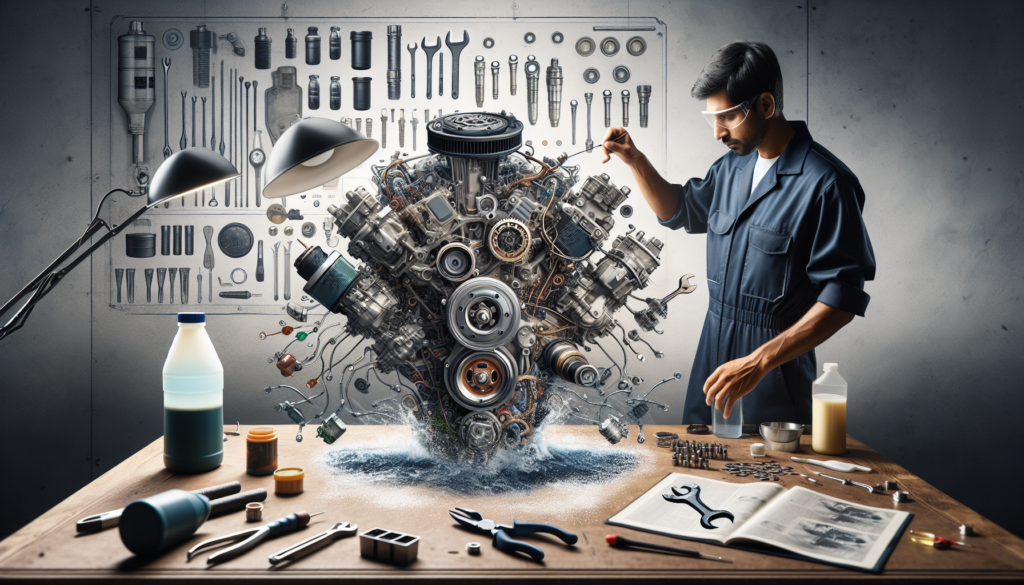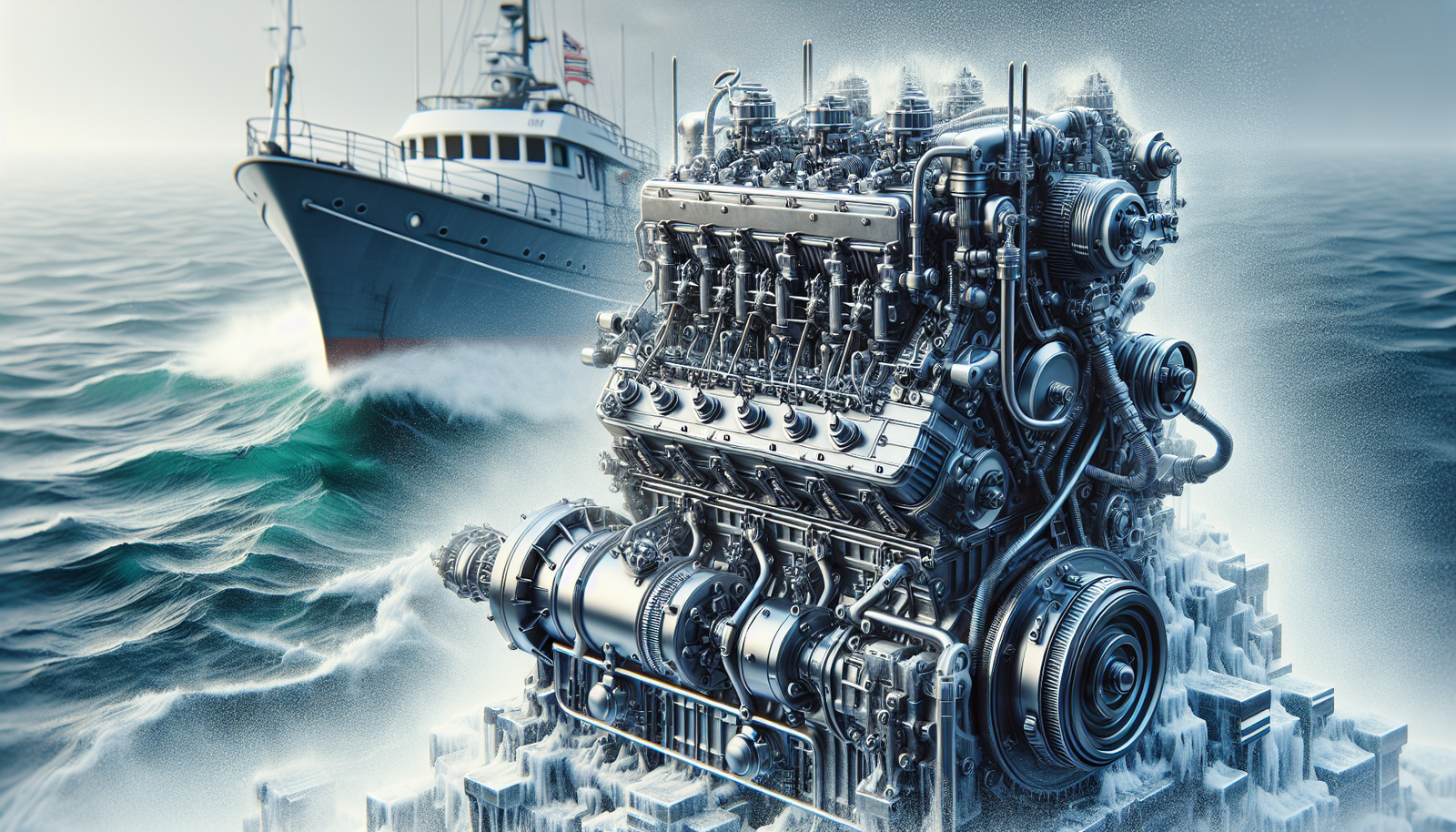Navigating the high seas can be an absolute thrill, but your seaward ventures can come to a grinding halt if your boat’s engine isn’t in tip-top shape. “The Best Boat Engine Upkeep Practices for Saltwater Boating” is your go-to guide for maintaining your boat’s engine optimally, especially for trips in saltwater. Protection against corrosive seawater, regular inspection methods, efficient cleaning techniques, and smart servicing tips are some of the insights you will get from this invaluable guide. Prepare for safe and smooth sailing by following the expert advice shared in this article.
Understanding the Impact of Saltwater on Boat Engines
Boating in saltwater can be a thrilling experience, but it’s crucial to understand the effect that saltwater has on your boat engine. Unlike freshwater, saltwater can cause extensive damage to your boat over time if proper measures aren’t put in place.
The corrosive effects of saltwater
Saltwater is highly corrosive due to its high salt content, which has a knack for causing rust and weakening metallic components like your boat’s engine. Prolonged exposure to saltwater accelerates the wear and tear of engine parts, leading to frequent breakdowns or, in extreme cases, total engine failure.
Specific engine parts vulnerable to saltwater
When it comes to saltwater damaging your boat’s engine, some parts are more vulnerable than others. These include the cooling system, fuel system, outboard jets, and exhaust manifolds. Regularly inspect these areas for signs of corrosion and immediately address any issues to minimize damage.
Effective Rinsing and Flushing as a Maintenance Practice
To keep your boat’s engine in good working condition, regular rinsing and flushing of the engine with freshwater are necessary. This technique is essential in mitigating the negative effects of sea salt.
The importance of freshwater rinsing
Using freshwater to rinse your engine after every boating trip helps remove the salt, thus slowing down the corrosion process. This is an easy maintenance practice that can significantly increase the longevity of your boat’s engine.
Flushing engine techniques
There are different techniques of flushing your engines, and the method you choose mostly depends on your type of engine. Some boats have built-in flushing systems, while others require you to use a flushing attachment. Regardless of the method, ensure you run the freshwater through the engine for long enough to wash away any salt residue.

The Role of Correct Fuel in Boat Engine Upkeep
The type of fuel you use in your boat engine plays a major role in its performance and longevity. It’s crucial to choose the right fuel and understand the effects of various fuel types on your engine.
Choosing the right boat fuel
Confirm from your boat’s manual the recommended type of fuel for your engine. High-quality fuels can help your engine run smoother, yield better fuel economy, and reduce the emission of harmful substances to the environment.
Effects of ethanol on boat engines
While ethanol-blended fuels are widely used, they may have negative effects on boat engines. Ethanol is known to attract moisture, which can lead to engine corrosion and potential problems with the fuel system. It’s best to use ethanol-free fuel, especially if you’re boating in saltwater.
Storing a boat with fuel in its engine
When storing your boat for a long period, consider draining the fuel system as ethanol-blended fuel can phase separate with time, damaging your engine. Alternatively, you can fill up your fuel tank and add a fuel stabilizer to keep the fuel fresh.
Regular Engine Check for Saltwater Boating
Ongoing inspection of your boat engine is critical in identifying potential problems early and mitigating the harmful impacts of saltwater.
Spotting signs of corrosion
Check your engine routinely for any signs of corrosion, like rusting on metallic parts, pitting, discoloration, or even holes. Early detection and repair can save you from severe damage and costly repairs.
Monitoring engine temperature
Your engine’s temperature can indicate the health of your engine in many aspects. Too high temperatures may suggest issues with the engine’s cooling system – which is subject to corrosion in saltwater conditions requiring immediate attention.

The Essentials of Boat Engine Lubrication
Regular lubrication of your boat engine helps ensure smooth performance, reduces heat produced from friction and extends your engine’s lifespan.
Selecting the appropriate boat engine oil
Your engine manual will specify the type of oil suitable for your engine. Using the wrong oil can negatively affect your engine’s performance and may even cause damage, so always stick to the recommended type.
Frequency of engine lubrication
Consistency is key when it comes to lubricating your boat engine. You should replace your engine oil at least once every season, or as often as recommended by the engine manufacturer.
Points to note when lubricating boat engine
When lubricating your engine, ensure all moving parts are well greased. Pay attention to the propeller shaft, seals, bearings, and any other areas noted in your engine’s service manual.
Effective Use of Antifreeze for Boat Engine
Antifreeze is a great tool to guard your boat’s engine against the harsh effects of saltwater. It also protects the engine from extreme temperatures – both hot and cold.
Benefits of utilizing antifreeze
Antifreeze mixed with water is used to cool down engines, and it’s especially beneficial for boats exposed to saltwater. The fluid also helps prevent freezing, boil-over, and corrosion caused by saltwater and rust.
Steps in applying antifreeze properly
To use antifreeze effectively, simply mix it with water according to the manufacturer’s instructions and pour it into your boat’s engine cooling system. It’s also crucial to flush out and replace your antifreeze periodically to maintain its efficiency.

Frequent Replacement of Boat Engine Components
Due to the corrosive effect of saltwater, some components of your boat’s engine will need to be frequently replaced.
Identifying components that require frequent replacement
While all parts of your boat’s engine are susceptible to gradual wear and tear, some parts need more frequent replacement. These include the fuel filters, spark plugs, anodes, and the drive belt. Always refer to your engine’s manual for guidelines on when to replace specific parts.
Acquiring quality replacement parts
Quality replacement parts are integral to the efficient running of your boat engine. Opt for quality manufacturer-made parts as they are designed to fit your boat engine precisely and to perform optimally.
Proper installation of new components
Correct installation of new parts is as important as acquiring the right components. If you’re unsure about installing the parts yourself, seek the help of a boating professional to avoid any costly mishaps.
Proper Storage Practices for Saltwater Boats
Whether you’re storing your boat for the winter or just a few weeks, proper storage practices are necessary to prevent damage from moisture and humidity.
Tips for offseason storage
Before storing your boat, ensure you have properly cleaned it with a quality boat wash. The engine should be flushed and the fuel system either drained or stabilized, and all components dried to prevent moisture build-up. Cover your boat well to keep away moisture, dirt, and pests.
Avoiding damage from moisture and humidity
Consider storing your boat in a climate-controlled space to avoid the damaging effects of humidity. If this isn’t possible, use dehumidifiers or desiccant products to keep moisture levels down.

Utilizing Protective Coatings and Sealants
Applying a protective coating or sealant to your boat’s engine parts is an effective maintenance practice for boats that operate in saltwater.
Benefits of protective coatings
Protective coatings and sealants create a barrier against saltwater, helping to minimize corrosion. They also protect against UV rays and other harsh conditions. This not only preserves the functionality of the parts but also keeps your boat looking clean and well maintained.
Correct application of coatings and sealants
Always clean and dry the surfaces before applying coatings and sealants. Follow the manufacturer’s instructions and apply a generous amount, ensuring all exposed parts of the engine are covered. Make sure you check and reapply the sealant periodically, as it can wear off over time.
Adopting Scheduled Professional Servicing
While you can conduct a lot of boat maintenance yourself, it’s also necessary to schedule regular professional servicing, especially if you’re frequently boating in saltwater.
Importance of regular servicing
Regular professional servicing is crucial for fixing any unnoticed issues and addressing problems beyond a boat owner’s knowledge. It also gives you peace of mind knowing you’re sailing a well-maintained boat that won’t let you down in the middle of the ocean.
Choosing the right service provider
When choosing a service provider, go for professionals with a good reputation and a track record of servicing boats similar to yours. They should also understand the typical issues faced by boats exposed to saltwater.
Preparation for professional servicing
Before the service appointment, make sure your boat is clean and all components are accessible for inspection. This will save time and ensure all areas of your boat are serviced efficiently.
In conclusion, frequent and appropriate maintenance practices are the secret to long-lasting boat engines, especially for saltwater boating. It does require effort and commitment, but peace of mind and extended years of boat engine durability in exchange is worth it.

